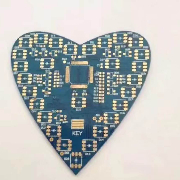1. Suitable for complex design
Complex devices with a large number of components and circuits benefit from the use of multilayer PCBs. Devices with multiple uses and advanced features require this complexity. Many multi-layer PCB boards also have functions such as impedance control and electromagnetic interference shielding, which further improve the quality of PCB boards and equipment.
2. High power
Due to the high circuit density, the circuit board is also more powerful. This means that they provide high operating capacity and speed, making them particularly suitable for advanced equipment.
3. Highly durable
As the number of layers increases, thicker boards are more durable. Therefore, it can withstand more...
1. Suitable for complex design
Complex devices with a large number of components and circuits benefit from the use of multilayer PCBs. Devices with multiple uses and advanced features require this complexity. Many multi-layer PCB boards also have functions such as impedance control and electromagnetic interference shielding, which further improve the quality of PCB boards and equipment.
2. High power
Due to the high circuit density, the circuit board is also more powerful. This means that they provide high operating capacity and speed, making them particularly suitable for advanced equipment.
3. Highly durable
As the number of layers increases, thicker boards are more durable. Therefore, it can withstand more severe conditions.
4. Small size and light-weighted
Small size and light weight are additional features of multilayer boards. This makes them ideal for device miniaturization.
5. Single connection point
In terms of design simplicity and weight, the fact that multilayer pcb board work with a single connection point is an additional advantage.
